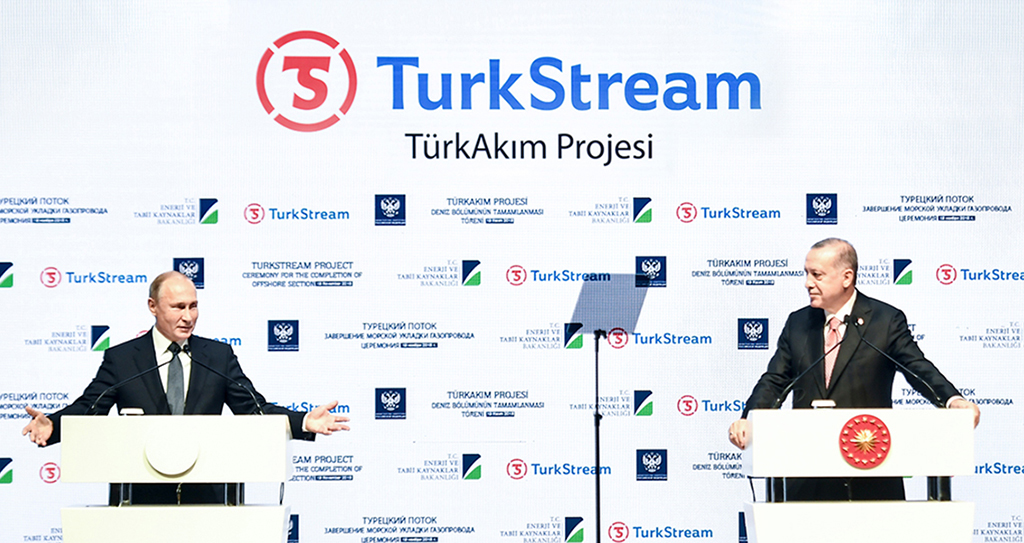Libya’s Future | With or Without a Turkish Military Presence?
This analysis examines the developments in Libya in order to portray why the risks continue to exist, looks at the agendas of the foreign actors and why they are committed to shaping the political and security landscape in Libya, and discusses why the Turkish military presence is an opportunity for both Libya and its allies. The analysis concludes that Turkey may cooperate with other actors as far as the Libyan public welcomes them, and that the Turkish military presence in Libya is a guarantee for the sustainability of Libyan stability.
More


Donbas Crisis | Geopolitical Importance, The Diplomatic Process, And Recent Developments
This analysis attempts to explain developments in the Donbas region of Eastern Ukraine, where a low-intensity armed conflict has been taking place since early 2014. The Kyiv authorities, on the one hand, and the self-proclaimed Donetsk People’s Republic (DPR) and Luhansk People’s Republic (LPR), on the other, are the two major parties to the conflict. Meanwhile, Russia is perceived as the main supporter of the two unrecognized republics of Donetsk and Luhansk.
More
The analysis elaborates, among others, on the Biden Administration’s European expectations and offers an outlook on potential future political and geostrategic relations and developments between the EU, Russia, the United States, and Turkey.
This analysis deals with the Turkish-Greek tensions with regard to natural resources in the Eastern Mediterranean and the Sea of Islands and contributes to the clarification of international law.
This analysis discusses the violations of international humanitarian laws committed by Armenia since September 27, 2020 in the occupied Azerbaijani lands.
This analysis argues that the increase in the LNG trade between Turkey and the U.S. is a win-win situation for both states.
TurkStream | The U.S. Opposition and the Reasons behind It
This analysis focuses on the position of different U.S. actors regarding the Turkish-Russian energy relations and, specifically, on TurkStream which is one of the most important projects undertaken by the two states.
More


The Greece-Egypt Maritime Agreement and Its Implications for the Greek-Turkish Dispute in the Eastern Mediterranean
The analysis examines the recent maritime boundary delimitation agreement signed between Greece and Egypt, and discusses its implications for the Greek-Turkish dispute in the Eastern Mediterranean.
More
The analysis discusses the evolving dynamics of Turkey’s military involvement in Libya, laying out Turkey’s motivations for supporting the UN-recognized government in Tripoli, and examining how Turkey’s recent military achievements on the ground may leverage its hand diplomatically to secure a political settlement that protects its interests in Libya and in the Eastern Mediterranean.
The analysis concludes by analyzing Turkey’s resurgent ties with the local Muslim communities in the Balkans (Albanians, Bosniacs, and Turks) and emphasizes Turkey’s contribution to regional peace and stability.
This paper investigates the trajectories of Turkey’s drone program, its historical origins, strategical rationality, and geopolitical implications.
The analysis examines the possible geopolitical implications of the Covid-19 pandemic and discusses what the post-Covid world order will look like from the perspective of realist International Relations (IR) theory.
The analysis provides an overview of the two central security challenges Greece faces today, namely the energy rivalry with Turkey in the Eastern Mediterranean/Libya, and the mass influx of refugees at the Greek-Turkish border, and discusses the prospects for a renewed Greek-Turkish détente.
This analysis addresses the potential changes in the constitution of the Russian Federation and the reasons behind the acting government’s resignation brought upon by President Putin on January 15, 2020. The work aims to underline the causes behind the proposed constitutional amendments and the government dissolution as well as its consequences on the future governance of Russia.
This study examines China’s conventional military doctrine and its evolution after the Cold War.
The analysis provides an overview of the Greek security policy in the Eastern Mediterranean since the failure of the latest round of Cyprus peace talks in July 2017 and highlights the continuity in the strategies employed by Greece to head off the perceived Turkish threat in the region.
This report urges the backers of the YPG to address its terror strategy, and to investigate, arrest, and punish those responsible for random attacks and war crimes resulting in the death of civilians. If these countries, most notably the United States, Russia and France, are unable or unwilling to do so, they have to re-evaluate their support to the armed group or be held accountable for the war crimes of the YPG.
TurkStream substantially contributes to bringing to the foreground an aspect of energy sources that strengthens cooperation and provides economic benefit rather than conflict.
In light of environmental terrorism, this report looks into the forest arsons committed by the outlawed terror organisation PKK (Kurdistan Workers’ Party) and the rhetoric used to legitimize them.
This analysis shows that although the United States was a security partner of both the EU and Turkey when it decided to no longer commit to responding to its allies’ security concerns, the latter took over the responsibility of ensuring their national defenses.
This analysis mainly focuses on the unification of all Syrian opposition under the Syrian Interim Government and gives policy recommendations.

















